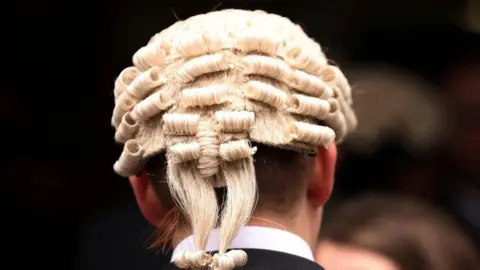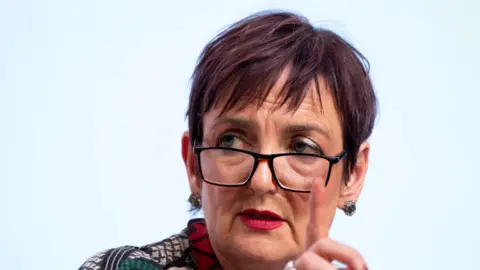Juryless rape trials pilot to be axed by Scottish government

 Reuters
ReutersA pilot scheme to hold trials for serious sexual offences without a jury is to be scrapped by the Scottish government.
The proposal would have seen a single judge decide whether people are guilty of rape and attempted rape in an attempt to increase conviction rates.
The scheme, which is expected to be dropped in an announcement later, was criticised by lawyers and judges who said it could breach human rights laws.
The government is going to press ahead with the abolition of the ‘not proven’ verdict, which has cross-party support.
The juryless trial would have taken place in 2028, but it split MSPs in Parliament.
The Scottish Solicitors Bar Association said it would be experimenting with people’s lives and threatened a boycott.
When the proposal was considered by the parliament’s influential criminal justice committee, the Senators of the College of Justice – the country’s judges – said that they were split over the issue.
SNP members of the committee, including first minister John Swinney, said they would support the proposal if safeguards were put in place.
Conservative and Labour members of the committee were against it.
BBC Scotland understands that in the face of that opposition the government is dropping the proposal from the bill.
 PA Media
PA MediaThe Scottish government’s reasoning was that while the conviction for most crimes sits around 90%, for rape it is much lower at about 50%.
It believed this was due to jurors often being swayed by “rape myths” – outdated attitudes that prejudice how they view the case and whether or not they believe the alleged victim is telling the truth about not having consented.
Among these beliefs are that genuine victims would try to fight off or escape an attacker, that they would immediately report the crime to the police rather than waiting months or even years to tell anyone, and that they should behave emotionally in court.
The justice secretary Angela Constance previously said there was a “compelling body of evidence” that jurors were being influenced in their verdicts by these myths.
Senior judge Lady Dorrian examined the issue and suggested the pilot scheme be trialled, in the belief that judges would be less likely to be influenced by such attitudes.
Mixed reaction
The Scottish government’s Victims, Witnesses and Justice Reform (Scotland) Bill, published in April 2023, included the plan.
Victim support groups such as Rape Crisis Scotland supported the proposal, saying survivors were currently being let down by the justice system.
However, the legal profession expressed concern the scheme could threaten the fundamental principle that an accused person is innocent until their guilt is proven beyond reasonable doubt.
Murray Etherington, president of the Law Society of Scotland, said it would “create a serious risk of injustice” while Thomas Ross KC said it created the possibility of a “witch hunt” against judges if they did not convict more people of sexual offences.
The legislation also contained proposals to reduce the size of Scottish juries from 15 to 12 with a majority of 8 required for a guilty verdict.
Prosecutors from the Crown Office told the criminal justice committee that could make it harder to get convictions.
It is believed the government is now planning to keep juries at 15, but raise the requirement for a guilty verdict to a majority of 10.
That would be presented as a counter balance to the abolition of not proven and recent changes on the rules on corroboration.










